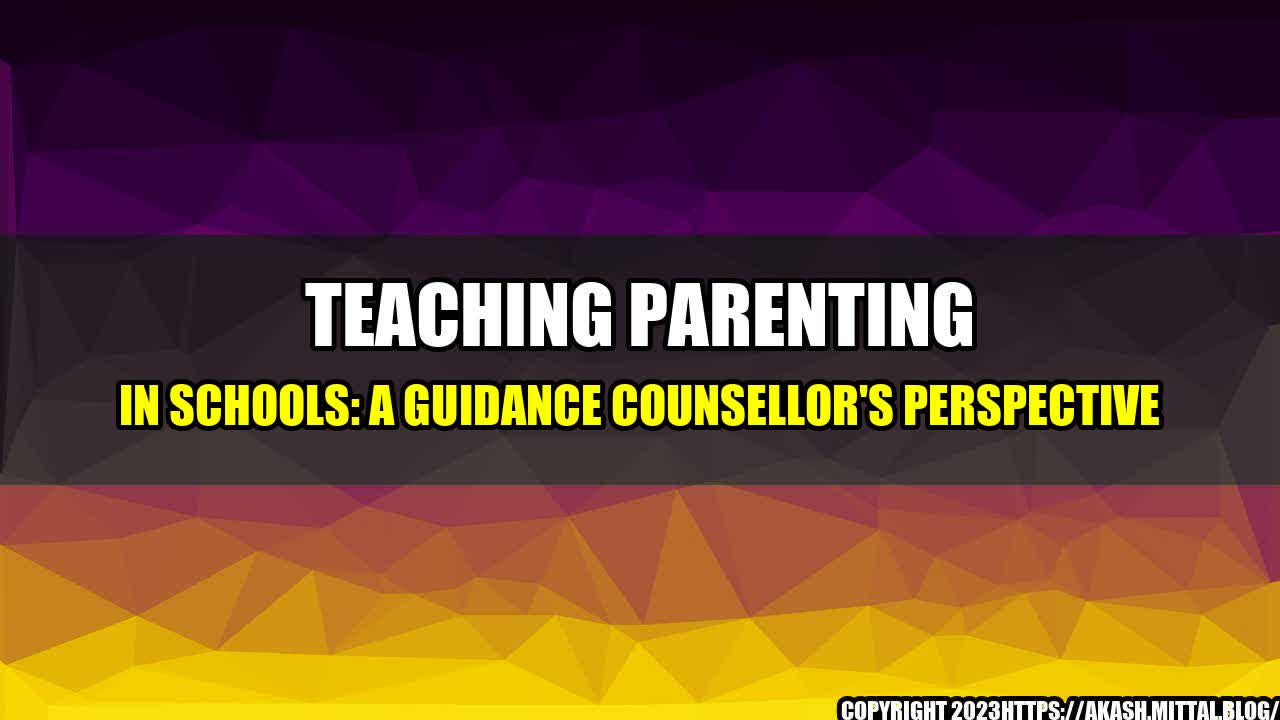It was a typical day at school when Mrs. Morgan (pseudonym), a guidance counsellor, received a call from a parent demanding to meet her. In the meeting, the parent complained about her daughter's poor academic performance and behaviour, blaming the school for not doing enough. Mrs. Morgan listened attentively and asked the parent a simple question: What have you done as a parent to support your child's learning and behaviour?
The parent was taken aback by the question and admitted that she hadn't done much. She thought it was the school's sole responsibility to take care of her child's education and behaviour. It's a common misconception among parents that schools are solely responsible for their children's upbringing. Mrs. Morgan; however, disagrees.
"Parenting is a shared responsibility. Schools and parents should work together to raise well-rounded individuals," she says.
Why is Teaching Parenting in Schools Important?
Parenting skills are critical to a child's upbringing and success. Children spend more time at home than at school, and their parents' behaviour and attitudes have a significant impact on their development. Therefore, involving parents in their child's education not only ensures academic success but also promotes healthy social and emotional development.
Unfortunately, many parents lack essential parenting skills, which can lead to negative outcomes for their children. For instance, children of parents who have poor communication skills have a higher likelihood of social and emotional problems.
Teaching parenting in schools can help curb these problems and equip parents with the necessary skills in child-rearing. By ensuring that parents have access to resources and skills to raise their children positively, schools can play a significant role in shaping the future of our society.
Practical Tips for Teaching Parenting in Schools
The following are practical tips for schools to teach parenting skills:
- Include parenting skills in school curricula or as a separate course. Schools can teach parenting skills such as communication, discipline, and monitoring children's behaviour, among other skills. These skills can be taught in groups or to individual parents, depending on the school's resources.
- Offer workshops and training for parents. Schools can invite experts to conduct workshops on parenting skills. These workshops can help parents learn practical skills, such as how to communicate effectively with their children and how to deal with behavioural problems.
- Collaborate with community resources. Schools can partner with community organisations to provide resources and educational programmes to parents. For instance, schools can collaborate with local hospitals to educate parents on child health and development.
Teaching Parenting in Schools
Several studies have shown the efficacy of teaching parenting skills in schools. For instance:
- A study of 175 families in the United States found that children whose parents received training in positive behaviour management had better grades and fewer behavioural problems compared to those whose parents did not receive training.
- A study of 112 parents from four schools in Taiwan found that parents who received parent-teacher alliance training had better communication and collaboration with their child's teacher, leading to better academic achievement and behaviour for their child.
Conclusion
Teaching parenting skills in schools is crucial to raising well-rounded individuals. Schools must work together with parents to equip them with the essential skills to support their child's academic, social, and emotional development. By providing access to resources and offering training, schools can help parents become effective partners in their child's education and ensure their success.
- Teaching parenting skills in schools promotes children's academic, social, and emotional development.
- Schools can teach parenting skills by including them in their curricula or as a separate course, offering workshops and training for parents, and collaborating with community resources.
- Several studies have shown that parental involvement and training in positive behaviour management lead to better academic achievement and behaviour in children.

Curated by Team Akash.Mittal.Blog
Share on Twitter Share on LinkedIn